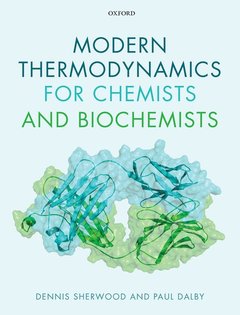Thermodynamics is fundamental to university and college curricula in chemistry, physics, engineering and many life sciences around the world. It is also notoriously difficult for students to understand, learn and apply. What makes this book different, and special, is the clarity of the text. The writing style is fluid, natural and lucid, and everything is explained in a logical and transparent manner. Thermodynamics is a deep, and important, branch of science, and this book does not make it "easy". But it does make it intelligible. This book introduces a new, 'Fourth Law' of Thermodynamics' based on the notion of Gibbs free energy, which underpins almost every application of thermodynamics and which the authors claim is worthy of recognition as a 'law'. The last four chapters bring thermodynamics into the twenty-first century, dealing with bioenergetics (how living systems capture and use free energy), macromolecule assembly (how proteins fold), and macromolecular aggregation (how, for example, virus capsids assemble). This is of great current relevance to students of biochemistry, biochemical engineering and pharmacy, and is covered in very few other texts on thermodynamics. The book also contains many novel and effective examples, such as the explanation of why friction is irreversible, the proof of the depression of the freezing point, and the explanation of the biochemical standard state.




